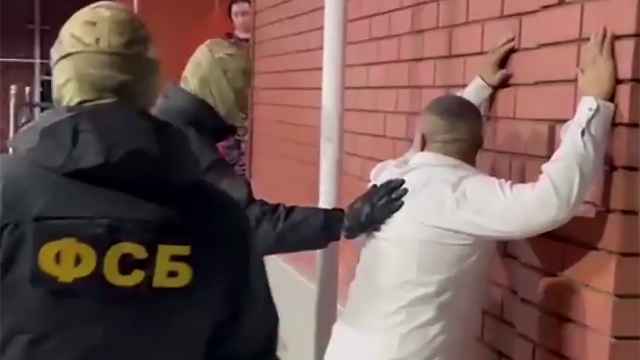Not so long ago, a Russian factory installed a large smokestack. Then along came Rostekhnadzor, the Federal Service for Environmental, Technological and Atomic Inspection, and said, "That smokestack is more than 50 meters high. A firefighting elevator must be installed." The factory owners tried to explain that it was filled with inert gas and that it was physically impossible for it to catch on fire. "That doesn't concern me," the government official responded. "Rules are rules."
A different factory constructed a gas line and installed a $3 million German end plug on the main line. Rostekhnadzor said, "The regulations require two end plugs." The factory owners tried to explain that those rules were written 40 years ago and that even in Europe a $3 million end plug was considered adequate. "I don't care. Install two," came the answer.
 Yulia Latynina
Yulia LatyninaThere is no end to such examples. The degree to which the Russian government interferes in the everyday functioning of industry exceeds all rational limits, and continues to increase.
The result is that a production facility that costs 100 million euros ($128 million) to build in Europe would cost 180 million euros in Russia. Even as construction costs continue to rise, the world prices for industrial products are falling.
Billionaire businessman Oleg Deripaska's RusAl is already on the verge of becoming a money-loser, if it isn't in the red already. Similarly, the production costs for copper, steel and nickel will outstrip revenues within two to three years.
This means that plants will shut down, and displaced workers will stage mass disturbances. When the whole system goes belly up, President Vladimir Putin will not be able to solve the problem by flying in and issuing a few orders.
There are two possible solutions to this problem. The first is to implement radical reforms by eliminating layers of useless red tape and shutting down entire regulatory agencies that serve no purpose. Putin would never agree to this because the state employees who enforce those meaningless rules and who live comfortably on taxpayers' money are his primary electoral base.
The second option is to devalue the ruble. This is a temporary measure, but it would postpone economic disaster for several years. According to reports, that is exactly what Deripaska was hoping for when he lobbied to have Sergei Glazyev appointed head of the Central Bank. From what I have learned, Deripaska told senior officials directly that Glazyev would start printing rubles to ease the pressure on the economy — and on his own debt burden.
Glazyev was not appointed head of the Central Bank, but the government does have a plan ready for devaluing the ruble. It is an emergency measure that would require merely pressing a button to implement, a plan that leaders have been close to adopting for over a year now.
Nobody was purposely being misleading. It's just that the plan was very nearly implemented and then postponed at the last moment out of concern for the serious problems connected with inflation. It is very possible that when Elvira Nabiullina takes the helm at the Central Bank in June, the exchange rate will begin a gradual fall to, say, 36 rubles to the dollar by year-end.
In any case, Russians should understand that they are living on a powder keg and that within two to three years, the intractable shortcomings of this regime will lead to either the widespread bankruptcy of vital industries or a precipitous devaluation of the ruble. Obviously, the government will ultimately choose devaluation.
Yulia Latynina hosts a political talk show on Ekho Moskvy radio.
A Message from The Moscow Times:
Dear readers,
We are facing unprecedented challenges. Russia's Prosecutor General's Office has designated The Moscow Times as an "undesirable" organization, criminalizing our work and putting our staff at risk of prosecution. This follows our earlier unjust labeling as a "foreign agent."
These actions are direct attempts to silence independent journalism in Russia. The authorities claim our work "discredits the decisions of the Russian leadership." We see things differently: we strive to provide accurate, unbiased reporting on Russia.
We, the journalists of The Moscow Times, refuse to be silenced. But to continue our work, we need your help.
Your support, no matter how small, makes a world of difference. If you can, please support us monthly starting from just $2. It's quick to set up, and every contribution makes a significant impact.
By supporting The Moscow Times, you're defending open, independent journalism in the face of repression. Thank you for standing with us.
Remind me later.





